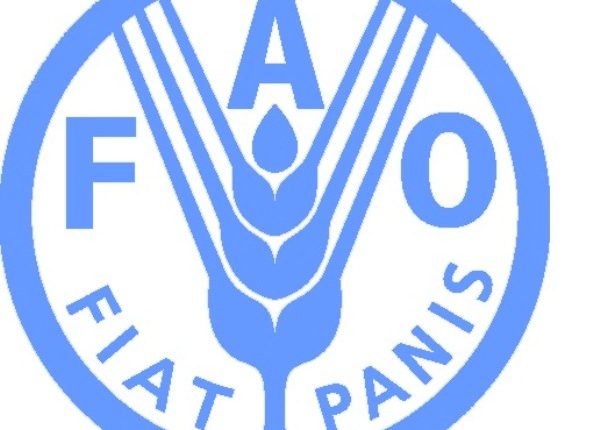A regional event on strengthening South-South and Triangular Cooperation (SSTC) in Africa opened today with a call for greater collaboration to unlock shared benefits. Organized by the Food and Agriculture Organization of the United Nations (FAO) and hosted by the Government of the United Republic of Tanzania, the two-day event has brought together government ministers, technical experts, private sector leaders and development partners to promote more efficient, inclusive, resilient and sustainable agrifood systems in Africa through South-South and Triangular Cooperation.
South-South Cooperation is the exchange of resources, technology, and knowledge between developing countries in the Global South, while Triangular Cooperation involves a third party, often a resource partner or multilateral organization, that facilitates or supports these exchanges. Together, SSTC provides an innovative model to accelerate progress on agrifood systems transformation.
A strategic moment for collaboration
As FAO marks its 80th anniversary, the Regional Policy Dialogue on Strengthening South-South and Triangular Cooperation (SSTC) for Agrifood System Transformation in Sub-Saharan Africa offers a timely opportunity to advance partnerships that deliver concrete results at scale.
Speaking at the opening session, Stephen Justice Nindi, Deputy Permanent Secretary of the Ministry of Agriculture of the United Republic of Tanzania, highlighted the value of African-led solutions and inter-regional collaboration. “It is my great pleasure and honour to welcome all of you,” he said. “Accelerating sustainable food systems and agricultural transformation is a top priority for the Government of the United Republic of Tanzania.”
FAO Assistant Director-General and Regional Representative for Africa Abebe Haile-Gabriel highlighted FAO’s long role in South-South Cooperation. “This dialogue is especially meaningful as FAO marks its 80th anniversary this year. SSTC is an expression of the solidarity and shared responsibility that FAO was founded upon.” He then shared three priorities to guide SSTC work: “One, SSTC needs to be embedded directly into national plans, budgets, and policies to ensure it is a core strategy, not a side project. Two, we must look beyond traditional donors to the private sector, academia, and farmer organizations to bring new energy and resources. And three, we should rigorously measure our results to prove their value and secure future investment.”
Director of FAO’s SSTC Division Anping Ye highlighted that FAO Member Nations hold the solutions to many of the challenges the world faces, and FAO’s role is to support countries to work together. “It is the goal and the responsibility of the FAO South-South and Triangular Cooperation team to provide qualified or high-quality services to our member countries,” he said.
A powerful solution in uncertain times
The dialogue focuses on six key priorities: strengthening institutional coordination to consolidate SSTC policy frameworks and mobilise resources; promoting scalable innovations in agriculture through cross-country collaboration; enhancing climate resilience and food systems through SSTC mechanisms; facilitating multi-regional partnerships across Africa, Asia and Latin America; aligning SSTC with national strategies and FAO’s Country Programming Frameworks; and formulating practical roadmaps to support the institutionalisation of SSTC and improved inter-ministerial collaboration.
Day one features country case studies and panel discussions on institutionalising SSTC in national and regional frameworks, including models from Uganda, Sierra Leone and The Gambia. Financing strategies and partnership models are also under discussion, including the FAO-China South-South Cooperation Programme, which has directly benefited over 100,000 people so far.
Day two will focus on aligning SSTC with national plans, technology transfer and action planning. Breakout groups will work on monitoring, evaluation, and roadmaps for scaling up SSTC efforts within country frameworks.
Expected outcomes include concrete policy recommendations, strengthened country partnerships, and commitments to follow-up actions such as the creation of inter-ministerial platforms or joint initiatives.
FAO’s strong track record in Africa
Sub-Saharan Africa is the region where nearly 80 percent of FAO’s SSTC efforts have taken place. Through partnerships with countries including Brazil, China, Morocco, Venezuela and Viet Nam, FAO has helped transfer knowledge, tools and technologies tailored to African priorities.
Examples include the deployment of over 290 Chinese experts and 200 scalable technologies in Africa through the FAO-China Trust Fund; technology and knowledge sharing from Viet Nam, supported by Spain, to boost Namibia’s aquaculture sector; Brazil’s successful school meals model adapted in countries such as Senegal and Ethiopia; Moroccan technical support that helped Guinea and Eswatini improve agricultural monitoring and investment planning; and Venezuela-funded rice systems development projects that improved rice production in 10 African countries including Guinea and Nigeria.
These projects demonstrate how SSTC can drive productivity, support smallholder farmers, and strengthen national institutions. As the Dialogue continues, FAO and its partners remain committed to expanding SSTC as a key mechanism for achieving sustainable development and resilient agrifood systems in Africa.
Distributed by APO Group on behalf of Food and Agriculture Organization of the United Nations (FAO): Regional Office for Africa.



